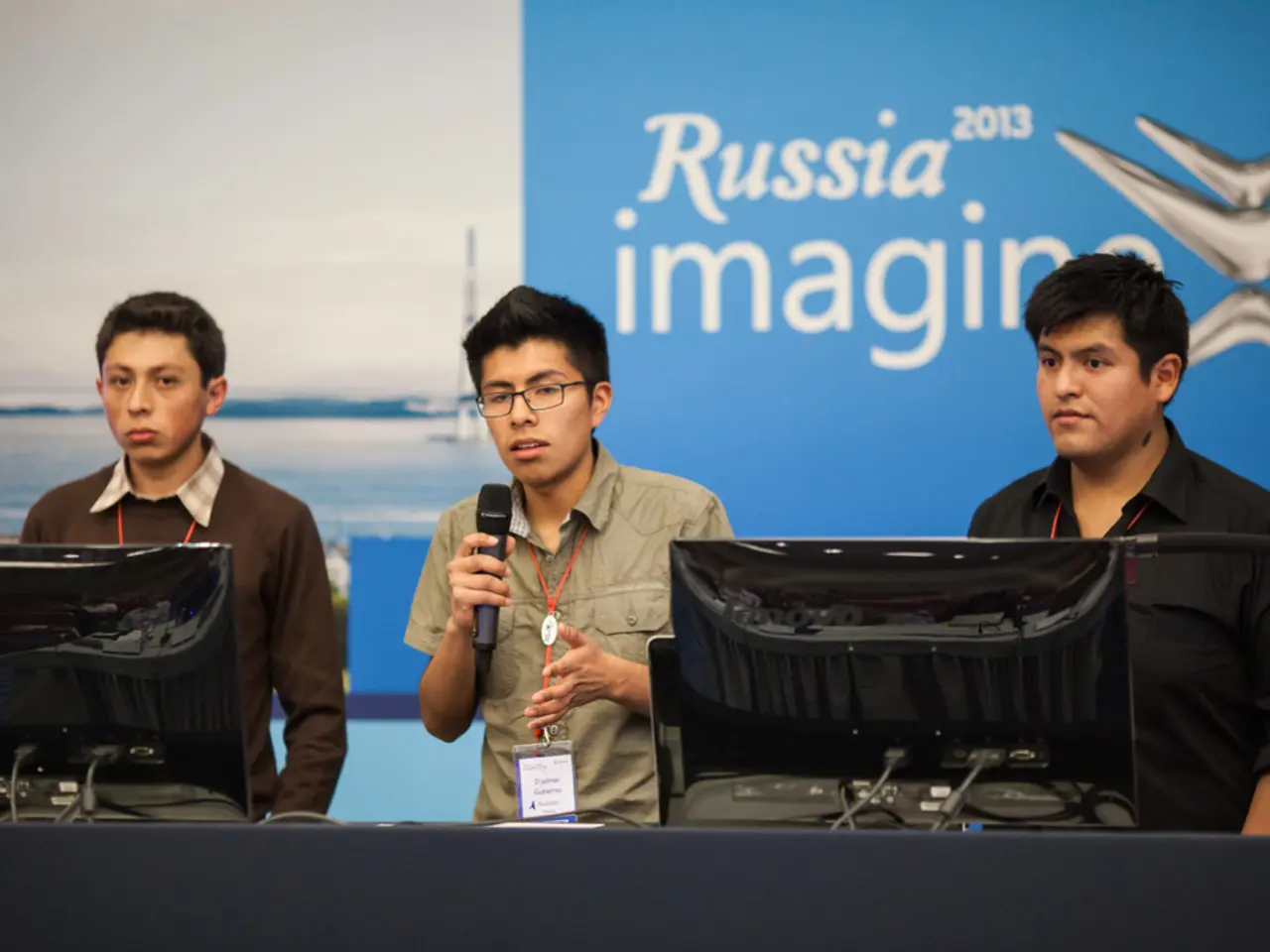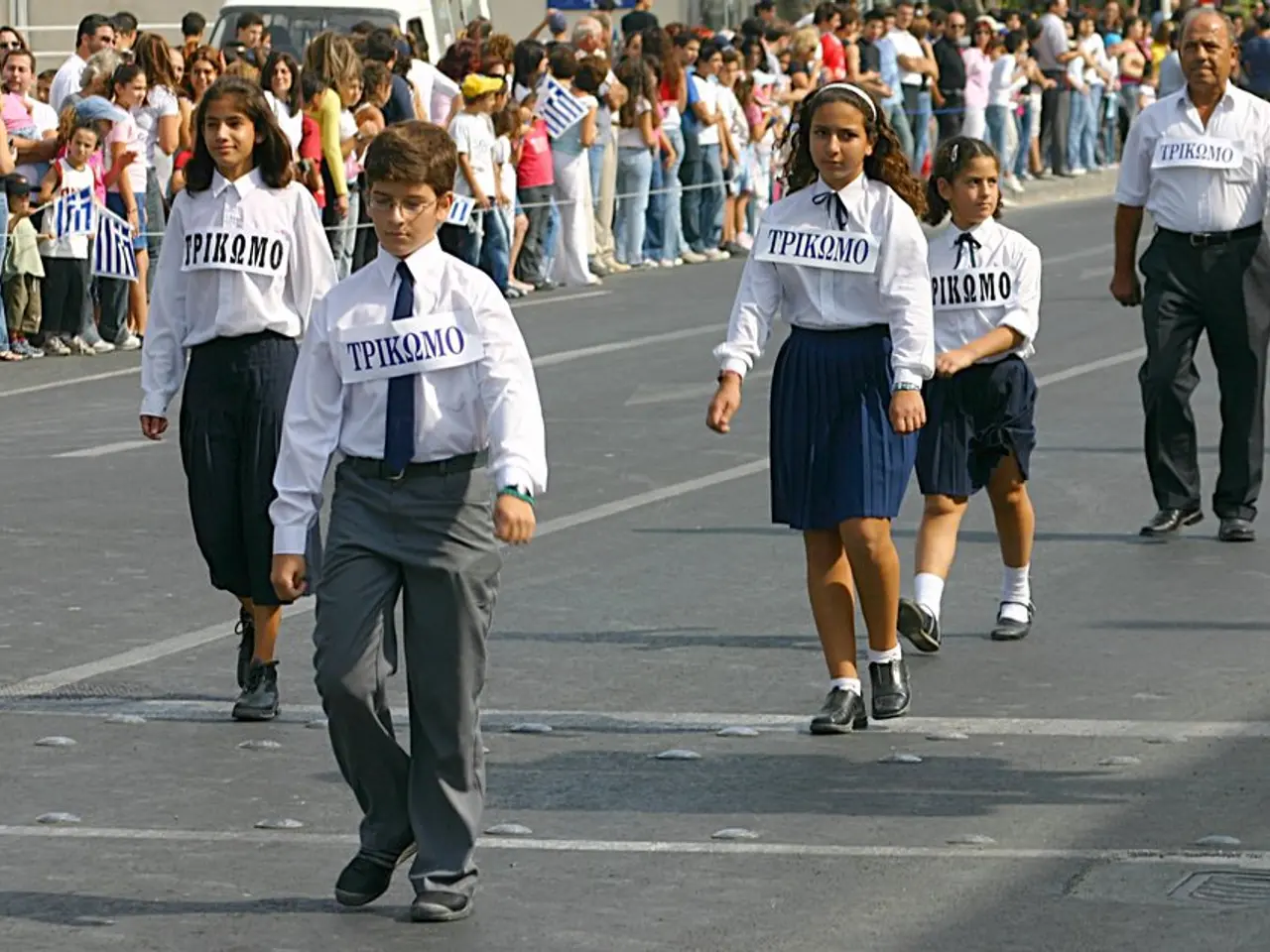Kyiv Delays Prisoner Exchange and Receipt of Deceased's Remains, According to Medinsky's Statement
In a surprising turn of events, the anticipated prisoner exchange and delivery of over 6,000 Ukrainian servicemen from Russia to Ukraine, scheduled to take place on May 16, has been postponed indefinitely.
The postponement was announced following a series of talks in Istanbul on May 16, where both Russia and Ukraine had planned to conduct a prisoner-of-war exchange on a "1000 for 1000" basis and an agreement on the exchange of bodies of the dead was reached.
The exchange was initially scheduled to involve 6,000 bodies and 640 prisoners of war, with a focus on the categories of wounded, severely ill, and military personnel under 25 years old. However, the exchange has been delayed due to Russia spreading false claims and disinformation accusing Ukraine of refusing to accept certain prisoners and selectively approaching the exchange.
Russia's negotiating delegation head, Vladimir Medinsky, claimed that delays were caused by Ukraine's alleged refusal to take back about 1,000 prisoners. However, these accusations have been refuted by Ukraine's Center for Countering Disinformation (CCD), which stated these claims are part of a deliberate Russian campaign to discredit the exchange process and manipulate public opinion.
Ukraine insists firmly on the principle of "all for all"—meaning all prisoners should be exchanged mutually—and maintains that any delay is caused by Russia's misinformation, not by Ukraine's refusal to participate. The CCD highlighted the spread of fake appeals supposedly from Ukrainian prisoners and other fabricated narratives as examples of Russia’s disinformation aimed at undermining trust in Ukrainian institutions and the exchange mechanisms.
Following the postponement, Moscow handed over the first list of 640 prisoners of war, categorized as "wounded, seriously ill, and youth" (under 25 years old). Three more trains, each with 1,200 bodies, and one automotive column with another 1,200 bodies are being prepared for departure in the near future.
Lieutenant General Alexander Zorin reported the postponement of the exchange, and Vladimir Medinsky called on Ukraine to adhere to the schedule and the agreements reached in Istanbul and "immediately begin the exchange."
Quite strange reasons were given for the postponement by the Ukrainian side, although no credible or independent sources have confirmed any genuine Ukrainian refusal or selective approach to exchanges. The Ukrainian side postponed the acceptance of bodies and the prisoner exchange to an indefinite date.
Prior to this, body exchanges of servicemen occurred on April 18 and March 28, with Russia receiving a total of 84 bodies and Ukraine receiving 1818 (909 bodies in each exchange).
Following the second round of talks on June 2, both sides intend to carry out the largest prisoner exchange to date, with plans to exchange up to 1200 people on each side, prioritizing the categories of wounded, severely ill, and military personnel under 25 years old.
It is worth noting that Ukraine may also have bodies of Russian servicemen, although there are probably far fewer of them. On June 6, Russia delivered 1,212 frozen bodies of Ukrainian servicemen in refrigerators to Ukraine.
The exact reasons for the postponement and the future of the exchange remain unclear, but both sides continue to engage in talks to find a resolution.
- The postponement of the prisoner exchange and delivery of over 6,000 Ukrainian servicemen from Russia to Ukraine, originally planned for May 16, has been attributed to Russia's misinformation and spread of disinformation, especially regarding Ukraine's refusal to accept certain prisoners.
- Amidst the ongoing talks, politics and general news continue to be dominated by war-and-conflicts and crime-and-justice, with a focus on the prisoner exchange, the exchange of bodies of the dead, and the spread of false claims and disinformation.







